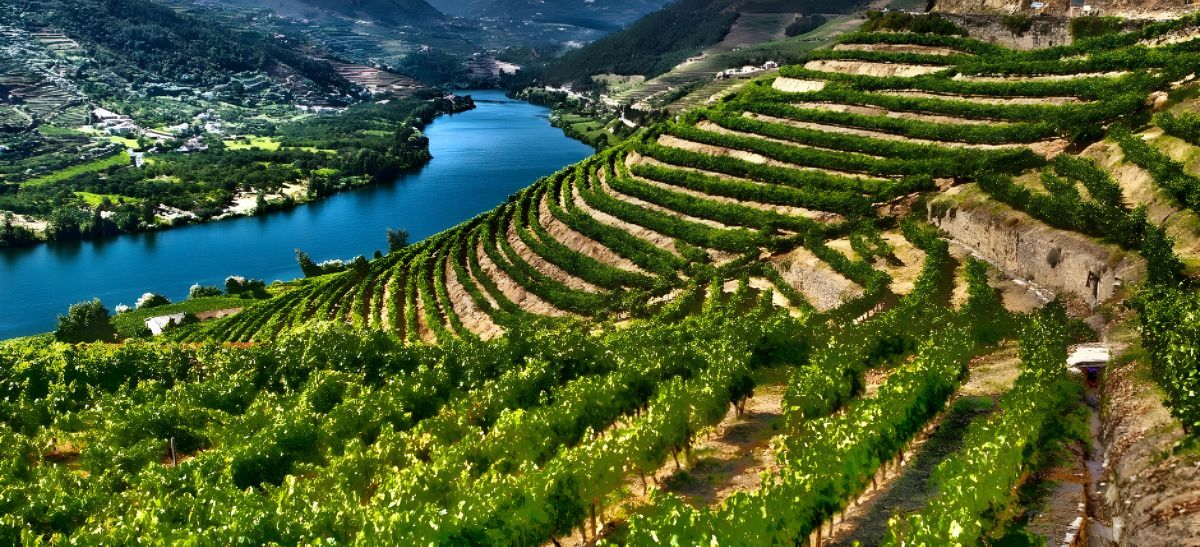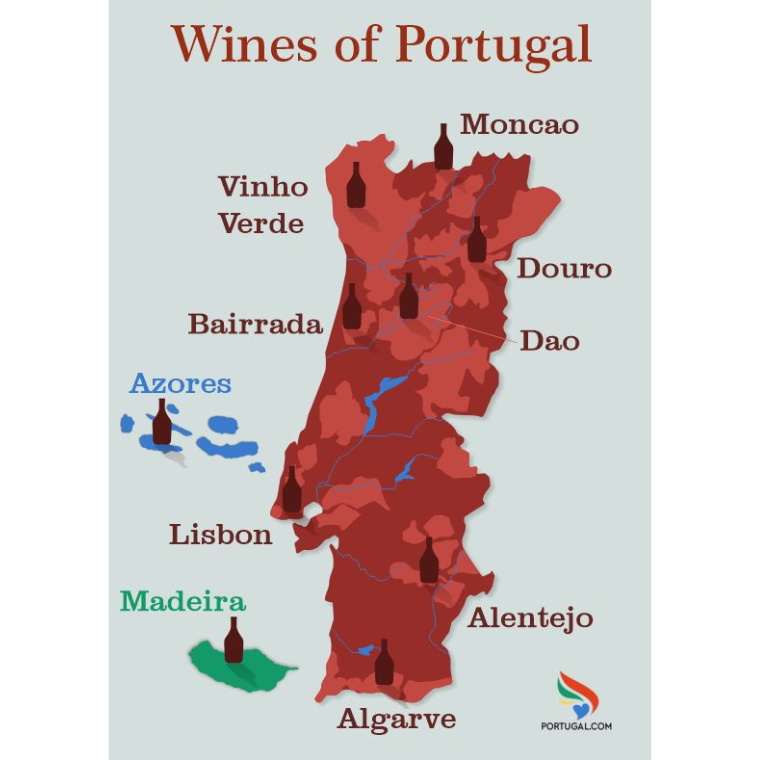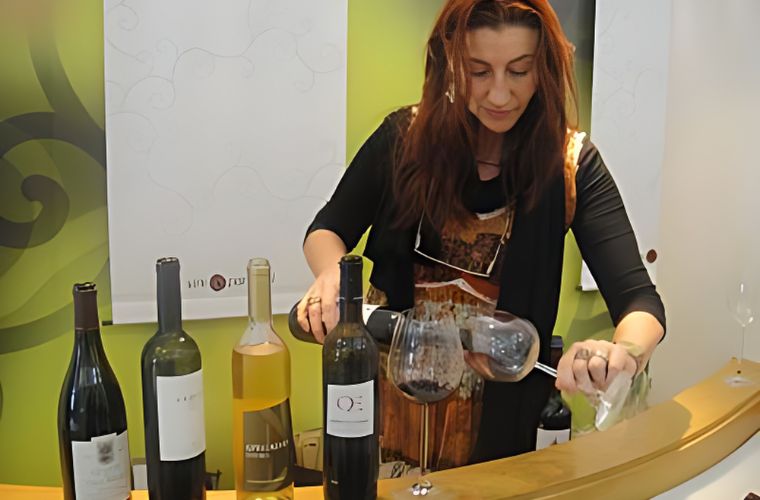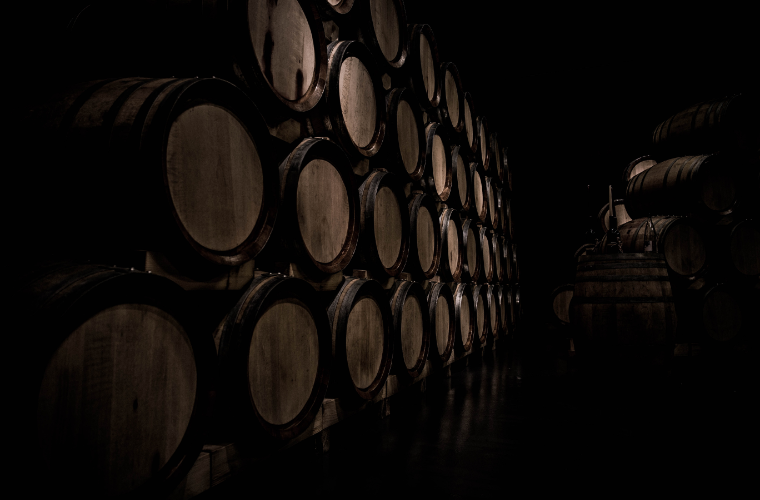Final
Deadline
April 16, 2026
Judging
Date
May 18, 2026
Winners
Announced
June 10, 2026

The diverse array of wine from Portugal has taken unbelievable strides over the past decades, in part owing to help from Wines from Portugal (ViniPortugal), the trade organization. This has included diversification in Port wine production, the advent of excellent Douro still wines, and huge advances in winemaking quality in other regions throughout the country.
Maria João Menezes, the ViniPortugal Managing Director in Lisbon took time from her very busy schedule to answer a few questions. Maria has an impressive background, with a Master‘s degree in Applied Biochemistry. She has worked both on the Portuguese mainland and in Madeira. Maria also teaches wine appreciation classes.
The Portuguese wine sector has a long history, with Portugal having been known for its wines since Roman times. Over the last 30 years, the sector has undergone significant transformations, with changes in the production, quality, and marketing of Portuguese wines.

Image Source: Pinterest
In the 1990s, Portugal began to invest more in modernizing its wineries and making wines possessing a more international profile. This included the introduction of new viticulture and winemaking techniques as well as the implementation of sustainability and certification practices. Many wineries also began to focus on indigenous grape varieties, which are unique to Portugal, highlighting the diversity and uniqueness of Portuguese wines.
Over the last three decades, Portuguese wines have gained international recognition for their quality and variety. In the last few years, we can say that all wine regions in Portugal have excelled, producing award-winning wines that compete in global markets. In addition, wine tourism has become an important part of the industry, with many wineries opening their doors to visitors, offering tours, tastings, and gastronomic experiences.
Another important aspect of the Portuguese wine sector's recent history is its adaptation to climate change. Rising temperatures and changing rainfall patterns have challenged producers to adjust their cultivation practices and explore new vineyard management techniques to ensure the quality and consistency of the wines.
In recent years, the sector has also witnessed an increase in the production of organic and biodynamic wines, reflecting the growing demand for sustainable and environmentally responsible products.
In addition, the global wine market has expanded, offering opportunities for Portuguese producers to reach new consumers around the world. This has been facilitated by the growing reputation of Portuguese wines, a work of ViniPortugal, the wine regions, and the producers themselves.
The Wines of Portugal brand plays a crucial role in promoting Portuguese wine around the world. It is responsible for promoting and publicizing Portuguese wines in international markets, increasing their visibility and competitiveness, through marketing campaigns in various countries to promote Portuguese wines, highlighting the different wine regions, grape varieties, and wine styles. This includes participation in fairs, tasting events, seminars, and the organization of training programs for sector professionals and consumers. Wines of Portugal also offers education and training programs for distributors, sommeliers, journalists, and other wine professionals around the world. This helps to increase knowledge about Portuguese wines and the ability to market them on international markets.
We, at Wines of Portugal, also work to guarantee the quality and authenticity of Portuguese wines by promoting quality and sustainability certification programs. This helps to protect the reputation of Portuguese wines on international markets and ensure consumer confidence.

Maria João Menezes at a Wine Tasting; Source: ViniPortugal
Over the last decade, the market and products related to Port wine have undergone several significant evolutions, reflecting changes in consumer preferences and global trends in the wine sector. Here I highlight some of these changes.
Product diversification. In other words, traditionally, Port wine was mainly consumed as a sweet fortified wine, but in recent years there has been a diversification of products. This includes the development of dry white Port, rosé, “Port tonic”, and even experimentation with less traditional styles of Port to attract new consumers.
In addition, there has been an increase in quality. Port wine producers have invested significantly in improving quality, from the vineyards to winemaking and aging. This has resulted in high-quality Port wines that compete in global markets.
Thanks to this quality, we have seen expansion into international markets. Port continues to be appreciated in traditional markets such as the United Kingdom and the United States, but it is also gaining popularity in new regions such as Asia. Producers are actively seeking to expand their global presence and increase exports.
Wine tourism has been a significant growth area for Port Wine and the Douro region in general. Many wine estates offer tourist experiences, including guided tours, tastings, and accommodation, providing visitors with a unique opportunity to learn about the history and production of Port wine.
As consumers become more interested in authentic, quality products, Port Wine has benefited from a general trend towards premium products with history. In addition, Port wine is increasingly being appreciated not only as a dessert drink but also as a complement to various occasions and gastronomic pairings.
Portugal is a country known for its extraordinary diversity of terroirs, grape varieties, and appellations, which uniquely positions it in the world wine market. This diversity is one of Portugal's main strengths, offering a wealth of flavors, styles, and wine experiences that are valued by consumers around the world.
Portugal has a wide variety of terroirs, from the cool Atlantic climate of the coast to the warm Mediterranean climate of the interior. In addition, the mountainous topography and proximity to the ocean provide a wide range of microclimates and soils, creating ideal conditions for growing an impressive variety of grapes.
Portugal is also home to more than 250 indigenous grape varieties, many of which are unique to the country. This includes varieties such as Touriga Nacional, Tinta Roriz, Baga, Alvarinho, Encruzado, and many others. These varieties provide a great diversity of aromas, flavors, and sensory characteristics to Portuguese wines, contributing to their uniqueness and complexity.
In addition, the country has several appellations of controlled origin and geographical indications that reflect the diversity of its terroirs and grape varieties. Some of the best-known wine regions include the Douro, known for producing high-quality Port and table wines; the Alentejo, famous for its full-bodied and aromatic red wines; the Dão, known for its elegant and fresh wines; and the Vinho Verde, characterized by its refreshing acidity and liveliness. In addition to these, there are many other wine regions in Portugal, each with its unique characteristics and contributions to the country's wine diversity, like Lisboa, Tejo, Bairrada, Trás-os-Montes, Beira Interior, Távora-Varosa, Península de Setúbal, Algarve, Açores and Madeira.
Overall, the diversity of Portugal's terroirs, grape varieties, and appellations is a significant competitive advantage, positioning the country as a producer of high-quality, distinctive wines that are appreciated by consumers around the world. This diversity not only enriches the Portuguese wine offer but also contributes to its reputation and competitiveness in the global wine market.

Port Wine Ageing; source: ViniPortugal
Several positive points could boost the growth of Portuguese wine exports over the next 3-5 years, such as international recognition. Portuguese wines are gaining more and more recognition and awards in international competitions, which increases their reputation and attractiveness in global markets. In addition, it has a huge diversity of products. Portugal offers a wide variety of wines, from the iconic Port and Madeira wines to the fresh Vinhos Verdes, the full-bodied Alentejo wines, and many others. This diversity allows Portugal to cater to a wide range of consumer preferences in different international markets.
Organizations like Wines of Portugal have invested significantly in marketing and promotion campaigns to increase the visibility of Portuguese wines in foreign markets. Continued efforts in this direction could boost exports even further.
In addition, wine tourism is on the rise in Portugal, with more visitors interested in exploring wineries and tasting local wines. This not only generates direct revenue for the wineries but also increases the exposure of Portuguese wines to international visitors, potentially boosting exports.
These are just some of the factors that could contribute to the growth of Portugal's wine exports in the coming years. With a combination of quality, diversity, and effective marketing strategies, Portugal is well-placed to continue expanding its presence in international wine markets. We are truly a world of difference.
In my opinion, the five main challenges facing the all wine sector, including the Portuguese, over the next five years are:
Climate Change: The wine sector is subject to climate change that can affect the growing conditions of vineyards, including changes in temperature and rainfall patterns, an increase in extreme weather events, and pressure on water resources.
Global Competition: The global wine market is highly competitive, with many producing countries fighting for market share. Portugal needs to face competition from other wine producers, both traditional and emerging and find ways to differentiate its products and stand out.
Sustainability: There is a growing demand for sustainable agricultural and production practices, both from consumers and government regulations. Wine producers in Portugal face the challenge of implementing and certifying sustainable practices while maintaining the economic viability of their businesses.
Access to International Markets: Although Portugal has made significant progress in exporting wines, there are growing challenges in accessing some international markets. This can involve issues related to increased tariffs, changes in import regulations, trade barriers, and, in some markets, competition with local producers.
[[relatedPurchasesItems-61]]
Consumer trends: Consumer tastes and preferences are constantly changing, with demands for healthier, more authentic, quality, and sustainable wines. Wine producers in Portugal need to be aware of these trends and adapt their products and marketing strategies to meet consumer expectations.
The wines of Portugal play an important role in helping the producers to face and overcome these challenges.
Header Image Source: ViniPortugal
Enter your Wines now and get in front of top Sommeliers, Wine Directors, and On-Premise Wine Buyers of USA.
